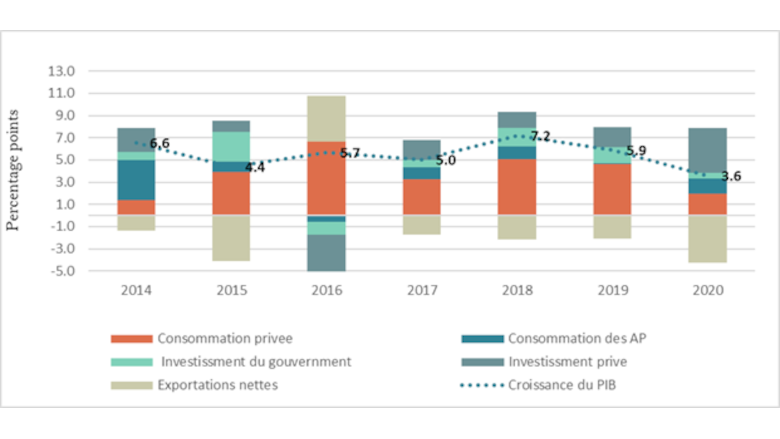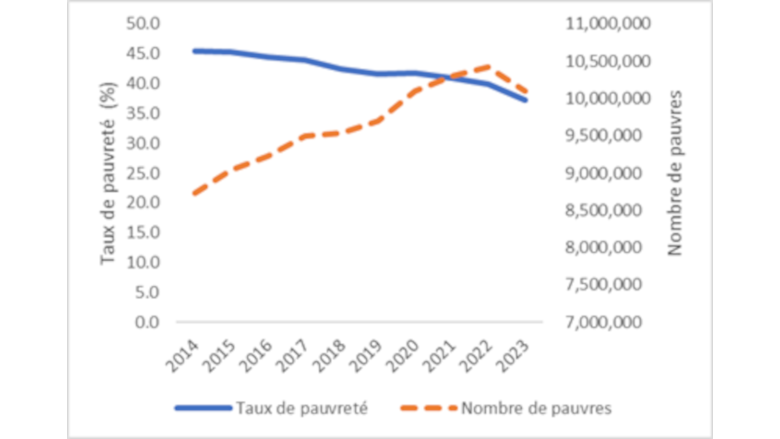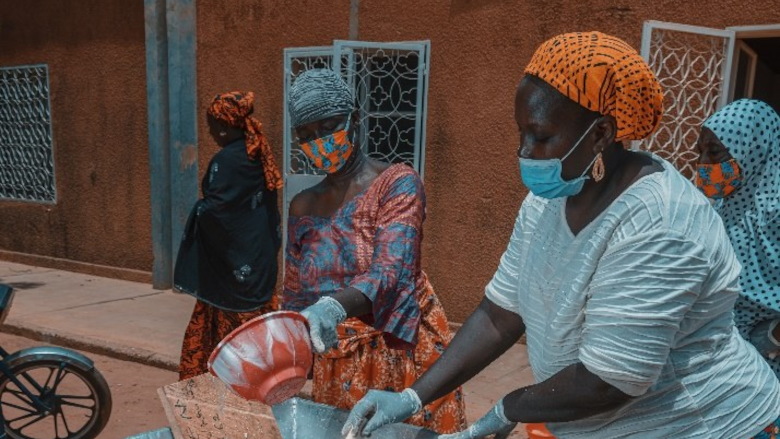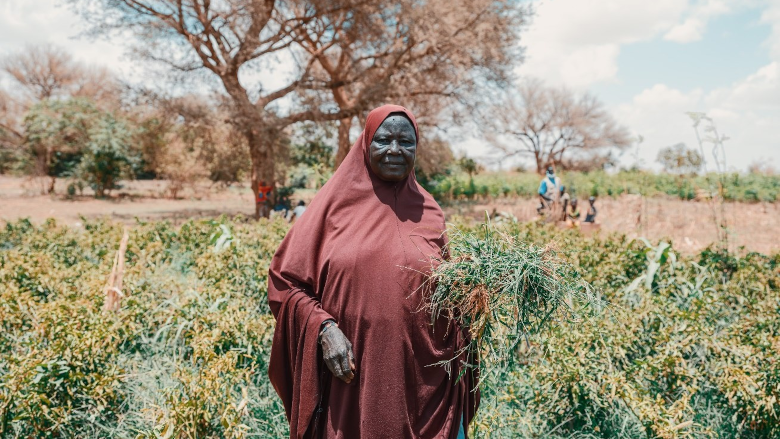NIAMEY, NIGER, July 26, 2021 – The COVID-19 health crisis, the fragile security situation, and environmental shocks are all impacting the lives and livelihoods of Nigeriens. Per capita income fell by 0.3% in 2020, increasing the share of the population living on less than $1.90 a day by 1.3%—approximately 400,000 more people.
 The report attributes this situation to the numerous shocks suffered by the economy:
The report attributes this situation to the numerous shocks suffered by the economy:
- Floods in August and September 2020, which caused significant losses and damage that triggered a humanitarian crisis affecting some 60,000 households, have led to socioeconomic losses in the agriculture sector amounting to approximately $90 million.
- The security crisis and escalating violence have caused more than 100 violent events and over 1,046 fatalities.
- As of April 14, 2021, Niger has reported more than 249 COVID-19 cases per 1,000,000 inhabitants, with a 3.7% mortality rate.
- Food shortages and speculative behaviors drove inflation from -2.5% in 2019 to 3.4% in 2020.
In addition to providing an economic update of the country, the report also assesses the poverty situation in the context of this crisis, and notes that recent hard-won gains in reducing poverty have already been wiped out. The effects of the shocks associated with the COVID-19 lockdowns, reduced working hours, job losses, restricted movements of goods and people, and the shutdown of activities in several sectors have impacted household incomes, increasing poverty by 0.1 percentage point to 41.7% and pushing an additional 400,000 people into extreme poverty. As a result, an additional 200,000 people are expected to join the ranks of the extreme poor, as these shocks are compounded by high population growth. The poverty rate is not expected to start declining until the end of 2023 and will remain higher than the pre-COVID-19 crisis level.

In this context, it is imperative that the slowdown in income growth does not cause permanent harm or lead to a loss in growth momentum. Given Niger’s limited fiscal space to mitigate the impact of the pandemic, the report recommends that priority be given to key sectors to reverse this trend. The country should therefore take steps needed to:
- adapt to the steady deterioration of climate conditions, which will increase its exposure to more severe shocks, for the population and the economy;
- manage the potential wealth from increased oil production in a productive and transparent manner, avoiding the pitfalls encountered by many other African countries; and
- improve the delivery of basic services, in particular health and education, and the quality of infrastructure to accommodate a larger population than the current one.
The report’s authors offer a glimmer of hope for the coming years, as the economy is expected to rebound and grow at a rate of 5.5% in 2021, driven by the reopening of the border with Nigeria, the resumption of large investment projects, and the normalization of other supply chains. This growth rate could even reach 10% by 2023, spurred mainly by oil production.
In addition, in order to blunt the impact of the crisis on Niger’s economy and prepare for the future, the authors recommend that the country implement a bold reform plan, supported by international partners, in three phases:
- The challenge in 2021 and beyond will be to continue supporting the economy while addressing higher debt levels than before the pandemic.
- Priority should be given in the short-term to health expenditure, particularly to the vaccine rollout, while maintaining well-targeted fiscal support for households and formal businesses hardest hit by the crisis.
- As conditions return to normal, fiscal sustainability must be maintained by increasing domestic resource mobilization and enhancing spending efficiency, particularly investment spending in sectors strategic for sustainable development, such as education, health, and agriculture. Reducing gender inequalities must also be a strategic objective.
“The COVID-19 pandemic continues to have a significant impact on Nigerien households, almost all of which have suffered from the economic slowdown,” notes Joelle Dehasse, World Bank Country Manager for Niger. “It is important for the government to be able to reallocate resources from general administration to social services and infrastructure in order to maximize growth opportunities and social welfare.”


